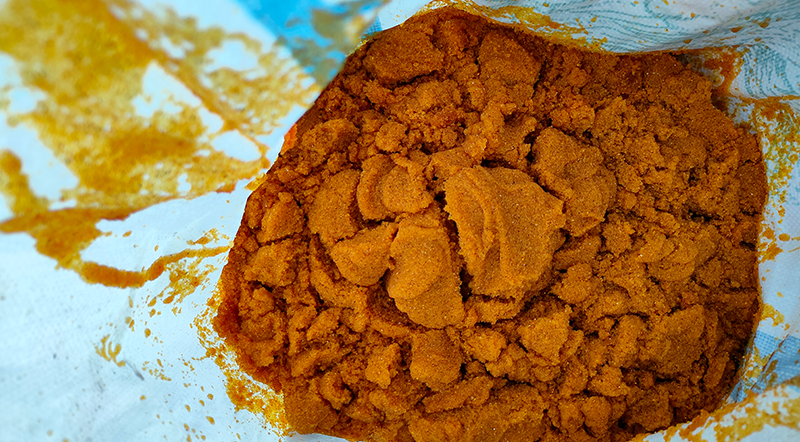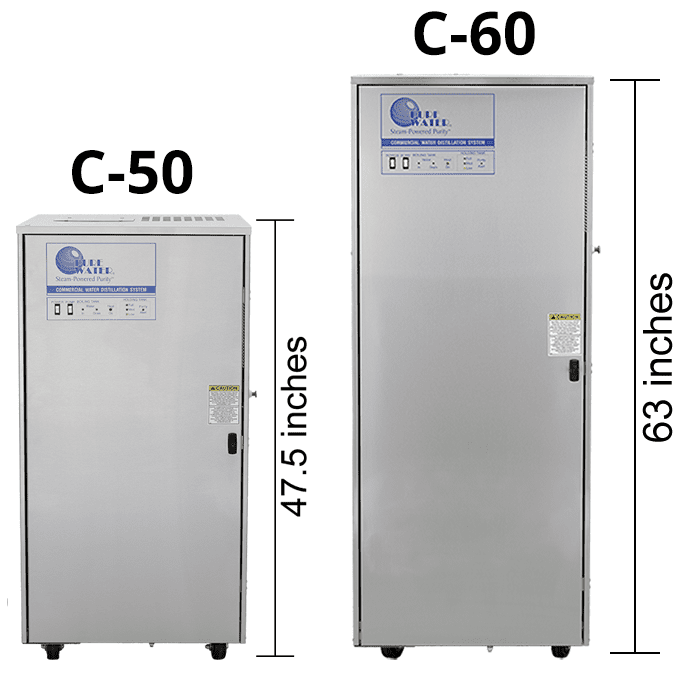Understanding the Differences Between Deionized Water and Distilled Water
Water, in its purest form, is essential for various industrial, scientific, and everyday applications. However, when water contains impurities, its effectiveness in specific processes can be compromised. This is where different types of purified water come into play. Two of the most common forms of purified water are deionized water (DI water) and distilled water. While they may seem similar at first glance, they are created through different processes and serve distinct purposes.
Deionized Water Resin
What is Deionized Water?
Deionized water, often abbreviated as DI water, is water that has had almost all of its mineral ions removed. These ions include salts like calcium, magnesium, sodium, and chloride, which are commonly found in tap water. The deionization process involves passing water through ion exchange resins that attract and remove these charged particles.
In simple terms, deionized water is water that has been stripped of its ions, making it electrically neutral. The ion exchange resins in DI water systems work by replacing positively charged cations (such as calcium and sodium) with hydrogen ions and negatively charged anions (such as chloride and sulfate) with hydroxide ions. The hydrogen and hydroxide ions then combine to form pure H₂O, effectively leaving the water deionized.
It’s important to note that while deionization removes ions, it does not necessarily remove organic molecules, bacteria, or viruses. Therefore, DI water may still contain certain non-ionic contaminants, although it is highly purified for most applications.
What is Distilled Water?
Distilled water is another form of purified water, created by a completely different process. Distillation involves boiling water until it vaporizes, then condensing that vapor back into liquid form in a separate container. As the water evaporates, impurities, minerals, and contaminants with higher boiling points remain behind, resulting in water that is free from most dissolved substances.
Distilled water is considered one of the purest forms of water, as this process removes almost all salts, minerals, and contaminants. Volatile organic compounds (VOCs), for example, may evaporate alongside the water and condense with it, depending on their boiling points. Due to this, Pure Water Distillers (distilled water machines) have post distillation carbon filters to remove any remaining VOCs for drinking water.
When is Deionized Water Most Commonly Used?
Deionized water is essential in situations where water needs to be free of ions or minerals that could interfere with processes or chemical reactions. DI water is highly sought after in industries that require the higher levels of water purity. Here are some key examples:
- Laboratories: In laboratory environments, DI water is frequently used in experiments and tests where even small amounts of ions can skew results. Analytical instruments, particularly those that detect ions, require DI water to ensure accuracy.
- Pharmaceutical Manufacturing: The pharmaceutical industry requires the utmost precision when producing medications, and the use of DI water helps avoid unwanted chemical reactions or contamination from ions in the water.
- Cosmetics Production: DI water is also commonly used in the cosmetics industry to ensure the purity of lotions, shampoos, and other products. Minerals in regular water can affect the formulation and consistency of products.
- Automotive and Aerospace Industries: In industries like automotive and aerospace, DI water is used to rinse parts or as a coolant. The absence of ions reduces the risk of corrosion, which is critical in these applications.
- Electronics Manufacturing: DI water is crucial in cleaning circuit boards and other electronic components, as any ionic contamination can cause electrical conductivity and lead to malfunction or short circuits.
How Many Uses are There for DI Water?
The uses for DI water are extensive, with applications across various industries. Some additional common uses include the following. In total, the applications of deionized water span over dozens of industries, with hundreds of individual processes requiring its use.
- Cooling systems in industrial machinery
- Production of medical devices and equipment
- Water for aquariums and hydroponics
- Production of high-quality glass and optical instruments
- Use in power plants for steam generation
Industrial Water Distillers

What are the Most Common Uses of Distilled Water?
Distilled water has its own unique advantages and is commonly used in situations where high-purity water is needed, but the focus is more on removing a wide range of contaminants, rather than just ions. Here are some of the most common uses of distilled water:
- Medical Applications: Distilled water is often used for sterilization, in autoclaves, and for medical procedures where impurities could cause infection or complications. It is also used in hospitals to make solutions for injection or irrigation.
- Laboratories: Like DI water, distilled water is used in laboratories, particularly for preparing solutions and reagents where purity is important.
- Home Appliances: Many people use distilled water in household appliances such as humidifiers, steam irons, and CPAP machines to prevent the buildup of minerals and scale. Distilled water extends the lifespan of these appliances.
- Beverage and Food Processing: Some food and beverage companies use distilled water in production, as the lack of minerals can alter the taste of food and beverages, providing consistency in flavor and quality.
- Automotive: Distilled water is often used in car batteries and cooling systems, as the absence of minerals helps avoid corrosion and scale buildup.
- Drinking Water: Distilled water is the best and purest drinking water available.
How Many Uses are There for Distilled Water?
Distilled water is widely used in homes, businesses, hospitals, manufacturing facilities, by military and more.
- Production of medicines and vaccines
- Farm or agricultural use
- Personal care products like lotions and perfumes
- Water for aquariums and hydroponic systems
- Automotive maintenance and repair
- Making soap and other cleaning products
- Restaurants
- Drinking water
Distilled water has a range of applications in industries where cleanliness, sterility, and purity are essential, especially when minerals and chemicals must be minimal.
DI Water vs. Distilled Water
Both deionized and distilled water are forms of purified water, but they are produced through different methods and used for different purposes. Deionized water undergoes ion exchange to remove minerals and is widely used in scientific, pharmaceutical, and industrial applications where ions can cause issues. Distilled water, on the other hand, is purified by boiling and condensation, making it ideal for medical, and domestic use where a broad range of contaminants need to be removed.
Ultimately, the choice between DI water and distilled water depends on the specific needs of the application. While deionized water is favored in industries that require the absence of ions, distilled water is preferred in environments where overall purity, especially from various contaminants, is important. Both types of water are useful and serve a wide variety of purposes that benefit from their unique characteristics.





Leave a Reply